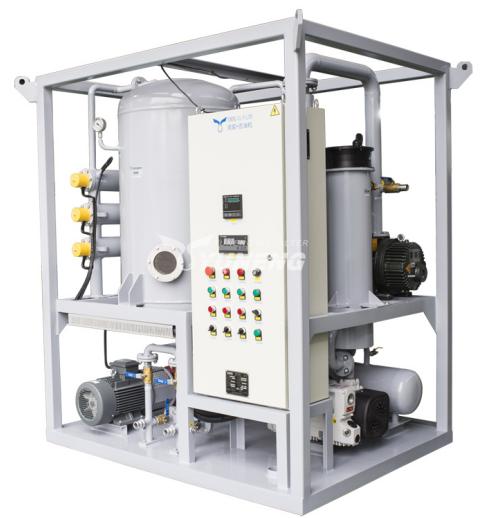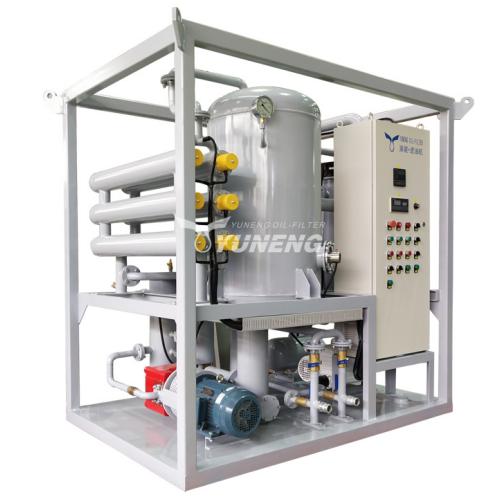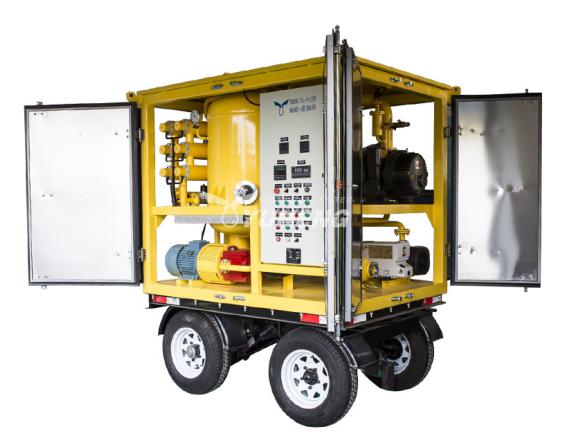Choosing the Right Oil Purifier: Key Features to Consider
Oil purification is a critical process in various industries, including manufacturing, power generation, and transportation. The quality of the oil determines the efficiency and reliability of machines and equipment, making oil purification a crucial aspect of preventive maintenance. An oil purifier is a specialized equipment designed to remove impurities and contaminants from oils to enhance their performance and prolong their lifespan. However, selecting the right oil purifier is not always an easy task. There are various features to consider, including flow rate, filtration rating, capacity, type of oil to be purified, portability, maintenance requirements, power requirements, cost, brand, and reputation. In this article, we will explore each feature in detail to help you make an informed decision when selecting a transformer oil purification machine.

Flow Rate
The term flow rate is used to describe the speed at which the oil purifier processes the oil. The flow rate decides on the amount of time needed to cleanse a certain amount of oil. It is essential to choose an oil purifier that has the right flow rate for the requirements of your processing. However, choosing an oil purifier that has more flow that you require could cause a loss of both energy and resources. In selecting an oil purifier, you should consider the volume of oil that needs that needs to be cleansed and the amount of oil consumption and timeline for turnaround. These aspects will allow you to identify the best flow rate for the oil purification requirements.
Filtration Rating
The filtering rating is the quantity of particles the purifier of oil can eliminate out of the oils. Filtration rating is crucial to ensure that the oil has been purified at the appropriate level. Filtration rating is a measure of how effective the purifier for oil in eliminating contamination and impurities out of the oil. Filtration ratings are measured in microns. It is vital to choose the oil purifier that has an appropriate rating of filtration to the oil that needs that is to be cleaned. Different oils have different filtering requirements. Choosing the incorrect filtration rate could result in a poor purification of oil. It is vital to select the right filtration grade taking into consideration the kind of oil that needs to be cleansed and the impurities to be eliminated.

Capacity
The power that an oil purifier has relates to the quantity of oil it is able to handle at any one moment. This is crucial to determine the effectiveness and efficacy of the purifier. If you are choosing the right oil purifier, take into consideration the amount of oil that needs that needs to be cleaned and the frequency of purification. An oil purifier with a small capacity is not able to be efficient in cleaning large quantities of oil. This can lead to delays in production and lower effectiveness. Also, choosing the right oil purifier having greater capacity than is needed could result in a loss of energy and resources. It is crucial to establish the proper capacity needed for the oil purification requirements in light of the amount of oil that needs to be cleaned as well as the frequency at which purification is conducted.
Type of Oil to be Purified
Different oils come with different needs for purification. It is essential to choose the purification method that works with the kind of oil that needs that needs to be cleansed. Certain types of oils require specific purifiers for oil to efficiently remove contamination and impurities. In the case of transformer oils, for instance, they require special oil purifiers capable of removing moisture as well as gases that can affect the insulation characteristics in the oil. Oil purifiers for hydraulic oils are required capable of removing the particulate matter, water as well as air in order to stop malfunctioning equipment. It is crucial to identify the oil type that needs to be cleansed as well as the exact requirements for purification for selecting the correct oil purifier.
Portability
The portability of an oil purifier is one important aspect to be considered when selecting the right oil purifier. The flexibility of the purifier will determine its user-friendliness and adaptability to different workplaces. It is important to pick the purifier which can be moved easily around workplace to aid in oil purification on various machinery and other equipment. Portable oil purifiers allow the easy purification of oil at various locations, which reduces interruptions and increasing effectiveness. But, it’s important to consider portability in conjunction alongside other characteristics like capacity or flow rate, to make sure that the oil purifier is able to meet the requirements of purification.

Maintenance Requirements
Maintenance requirements for the oil purifier is crucial in making sure that the machine operates with maximum efficiency. There are different types of oil purifiers that have different demands for maintenance. This includes the replacement of filters as well as oil level checks as well as cleaning. It is crucial to choose an oil purifier that has the maintenance requirements that are in line with your capability to complete the maintenance tasks. An oil purifier that is high maintenance will require regular maintenance which can cost a lot of money and lengthy. However the low maintenance purifier might not be able to cleanse the oil leading to lower efficiency and more breakdown of the equipment. It is important to take into consideration the requirements for maintenance of the oil purifier so that it is operating at optimum performance.
Power Requirements
The requirements for power for an oil purifier are the determinant of the amount of energy it consumes and also the kind of power source required to run it. Certain purifiers require straight connection to a electricity source while other require a battery or generator to function. It’s crucial to pick an oil purifier that has specifications that are compatible with the energy requirements of your household and supply of energy sources. It is equally important to think about the power consumption for the oil purifier, to be sure that it will not cause high energy bills.
Cost
The price of an oil purifier is a crucial factor when deciding which one to choose. Purifiers for oil are available at various cost, ranging from affordable to expensive models. It’s crucial to pick the right oil purifier to fit the budget you have set while providing the purification you require. It is crucial to remember that choosing the lowest-cost purifier might not work in removing the oil. This can lead to a decrease in efficiency and an increase in the chance of failures to equipment. It is crucial to weigh costs with other aspects like the capacity, flow rate and the filtration rate, in order so that you can ensure the purifier is able to meet your requirements for purification.
Brand and Reputation
The name and the reputation of the company that manufactures oil purifiers are crucial factors to take into consideration when selecting the right oil purifier. A trusted brand is more likely to provide high-quality oil purifiers to meet your cleansing requirements. It is crucial to investigate various brands and the reputation of their respective companies before deciding on the best oil purifier. Reviews and comments from customers could provide information about the reliability and effectiveness of various purifiers for oil.
To conclude, choosing an oil purifier that is suitable for your needs can be crucial to improve performance and life span of equipment and machines. If you are choosing an oil purifier is important to take into consideration aspects like the flow rate, filtration ratings capacity, capacity, the type of oil being cleaned, portability as well as maintenance and costs, power requirements branding, reputation, and brand. With these factors in mind then you will be able to choose an oil purifier that is compatible with the requirements for purification, which leads to improved efficiency, less time to repair, and less breakdown.
